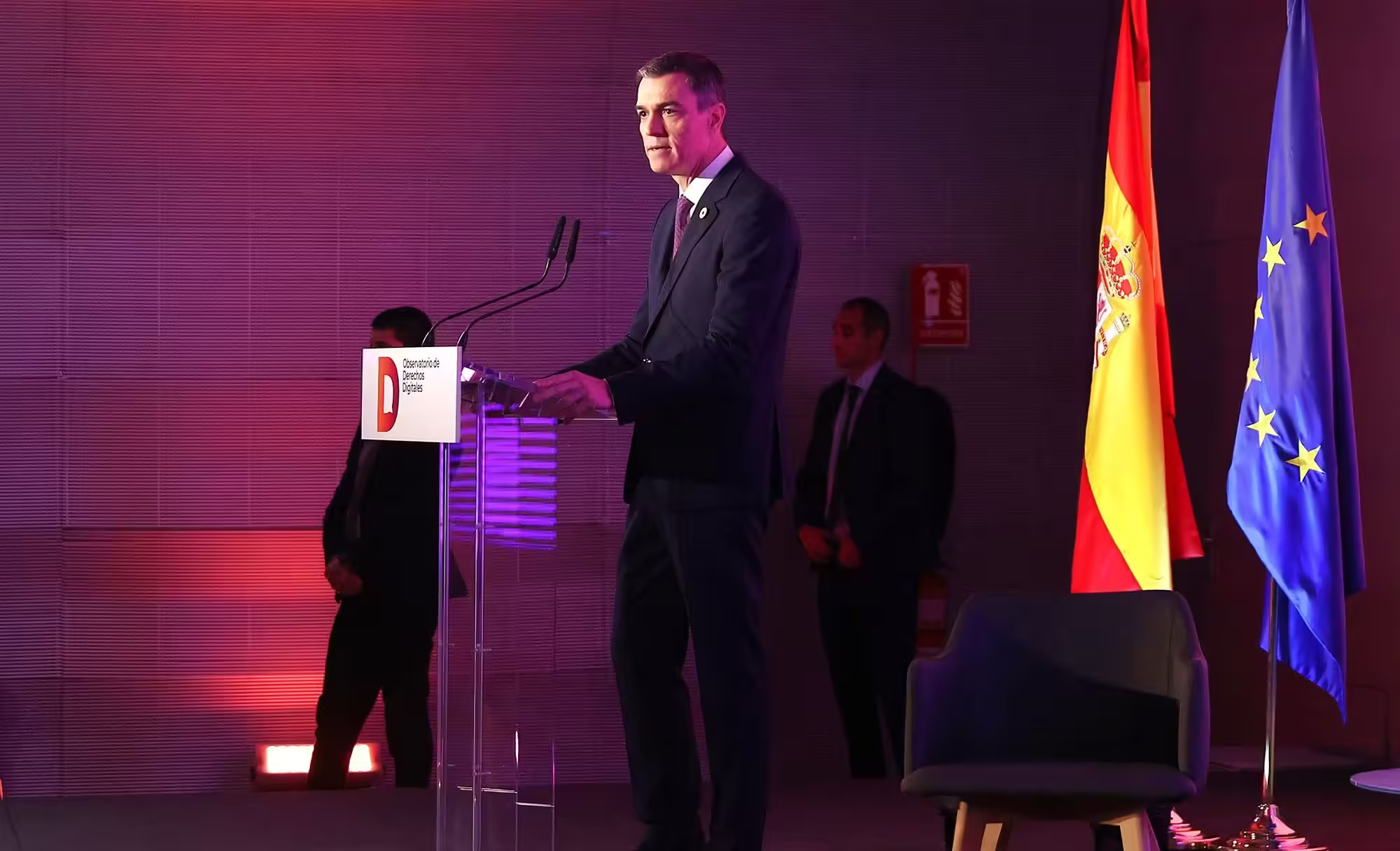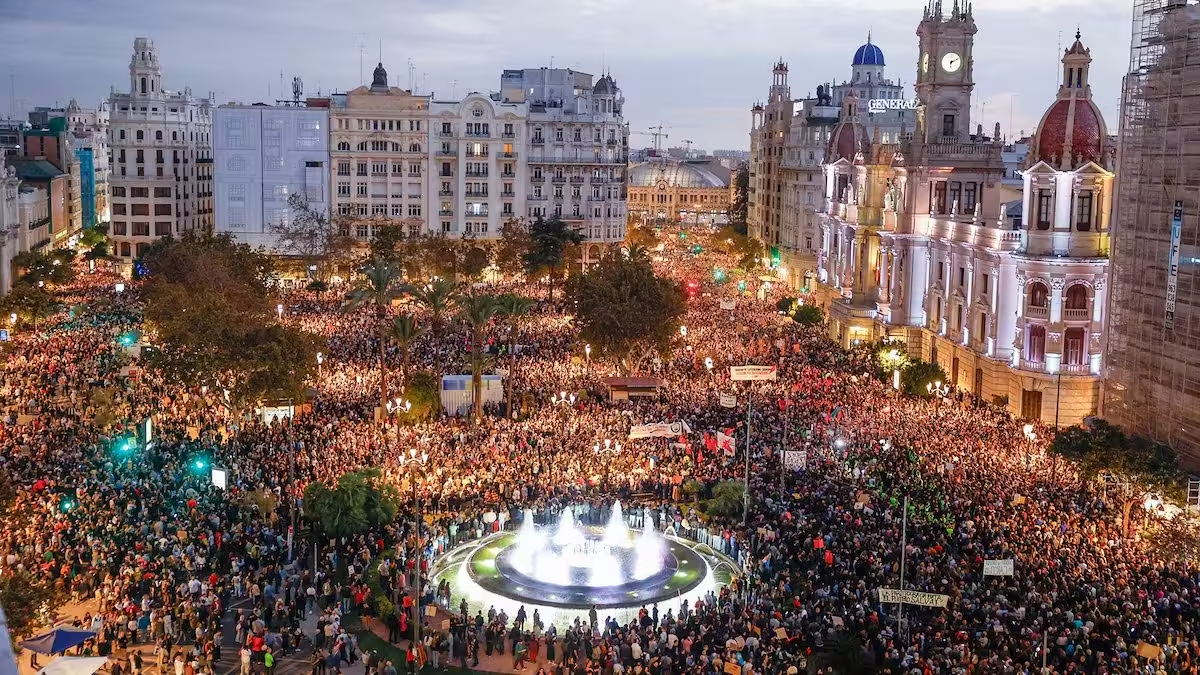Spanish Prime Minister Calls Out Musk and Zuckerberg
Spanish Prime Minister Pedro Sánchez has called for tech billionaires like Elon Musk and Mark Zuckerberg to be held legally responsible for the effects of their algorithms. Speaking at a digital rights event in Madrid today, February 5, Sánchez criticized the growing power of big tech companies, accusing them of trying to control laws, influence lives, and even shape public opinion.
Sánchez Takes on the ‘Technocaste’
Sánchez didn’t hold back in his criticism of tech giants, referring to them as the ‘technocaste.’ He argued that these billionaires aren’t just content with their wealth, they want political power too. ‘They want to sit in government meetings, control our laws, and even influence what we think,’ he said.
The Prime Minister stressed that in a democracy, no one should have unchecked power. ‘These CEOs must take responsibility for the harm caused by their platforms,’ he added, pointing to examples like Elon Musk’s support for far-right groups in Germany and the spread of fake news on social media.
A European Solution to Big Tech Dominance
To counter the influence of U.S.-based tech giants, Sánchez proposed a European alternative. He called for the creation of European-made technology, including social networks, messaging apps, and web browsers. ‘Europe can lead the way in creating a digital world that respects our values,’ he said.
Sánchez highlighted Spain’s recent efforts, such as the development of Alia, an AI system trained in Spanish and other regional languages, as an example of what Europe can achieve.
No More Hiding Behind Anonymity
Sánchez also repeated his call to end anonymity on social media. ‘You can’t walk down the street without an ID or drive a car without a license plate. Why should social media be any different?’ he asked. He argued that anonymity allows people to spread lies and hate without consequences.
He also criticized tech companies for cutting back on content moderation, which he said has led to more misinformation and harmful content online. ‘What happens on these platforms doesn’t stay online, it affects real lives,’ he warned.
Holding Tech Giants Legally Responsible
Sánchez announced that the Spanish government is working on new laws to hold tech billionaires accountable for the damage caused by their algorithms. He pointed out that current laws, influenced by U.S. regulations, often protect these companies from being held responsible for what users post on their platforms.
‘We can’t let these companies ignore the harm they cause,’ Sánchez said. ‘They need to follow the same rules as everyone else.’
Launching the Digital Rights Observatory
Sánchez’s speech took place at the launch of Spain’s new Digital Rights Observatory, a government initiative to protect people’s rights in the digital world. Funded with €10.83 million from EU recovery funds, the Observatory will focus on issues like online privacy, security, and fair access to technology.
The project will also study the social and ethical impact of technology and work to close the digital divide. Over 20 companies and universities are involved, aiming to create strategies for implementing Spain’s Digital Rights Charter.
A Call for a Fairer Digital Future
Sánchez ended his speech with a call to action. ‘We need to take back control of technology and make sure it serves everyone, not just a few billionaires,’ he said. He urged Europeans to support efforts to create a digital world that is fair, democratic, and respectful of human rights.
As the EU continues to tackle the challenges posed by big tech, Sánchez’s push for accountability and a European-led digital transformation could lead to significant changes in how technology is regulated globally.
What do you think? Is Sánchez right to challenge the power of these tech billionaires? Should algorithms be held to the same legal standards as other industries? And can Europe truly create a fairer, more human-centered digital future? Let us know in the comments
Share this content:




6 comments